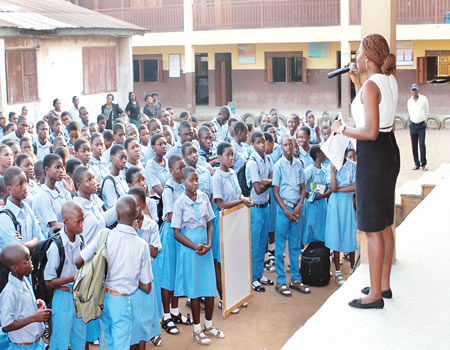It, however, urged the National Universities Commission (NUC), National Board for Technical Education (NBTE) and the National Commission for Colleges of Education (NCCE) to develop a framework for Build, Operate and Transfer (BOT) to encourage private sector involvement in development of infrastructure across all levels of institutions.
The observations were contained in a communique issued at the just-concluded 2018 National Council on Education (NCE) meeting held in Abuja.
The meeting, which the ministerial session was chaired by the Minister of Education, Malam Adamu Adamu, noted the need for the private sector involvement for the provision of hostel facilities and other infrastructure that could assist the nation to achieve target 4(a) of Goal 4 of Education 2030 Agenda.
Stakeholders at the meeting also identified the need for adequate funding to effectively implement inclusive education in view of many other competing needs in the sector.
The Minister of State for Education, Professor Anthony Anwukah, who read the communique, said government is concerned about the dilapidation of infrastructure in schools and its dire consequence on education service delivery, especially at the post-basic education level.
According to the communiqué, the council noted the importance of developing a Corporate Social Responsibility (CSR) strategy to source for funds, and that the chapters 6 and 7 of the Draft National Policy on Science and Technology Education on funding and management of Science and Technology Education have been reviewed as directed by the National Council on Education.
It also noted that technical and vocational colleges have production units with broken-down and obsolete equipment, stressing that commercialising the products from these colleges would assist in the funding of technical and vocational education and training (TVET) as profit generated would be ploughed back into the colleges.
The council also underscored the importance of introducing entrepreneurial and enterprise fair as an alternative source of funding for schools in all the states of the federation, including the Federal Capital Territory (FCT).
It noted that the re-introduction of school farm programme into the basic education system would ensure that some revenue is generated for schools.
The communique noted: “The manpower deficits in schools due to shortage of qualified teachers and other support staff, especially at both primary and secondary school level.”
“The need to extend the ongoing e-library projects at Federal Government Colleges to states, FCT schools and public libraries;
“The need to identify relevant non-governmental organisations that can assist in teaching and learning of entrepreneurship subjects in the schools.
“The non-existence of national skills databank for artisans, craftsmen, operatives and skills clusters for trainees and their trainers.”






